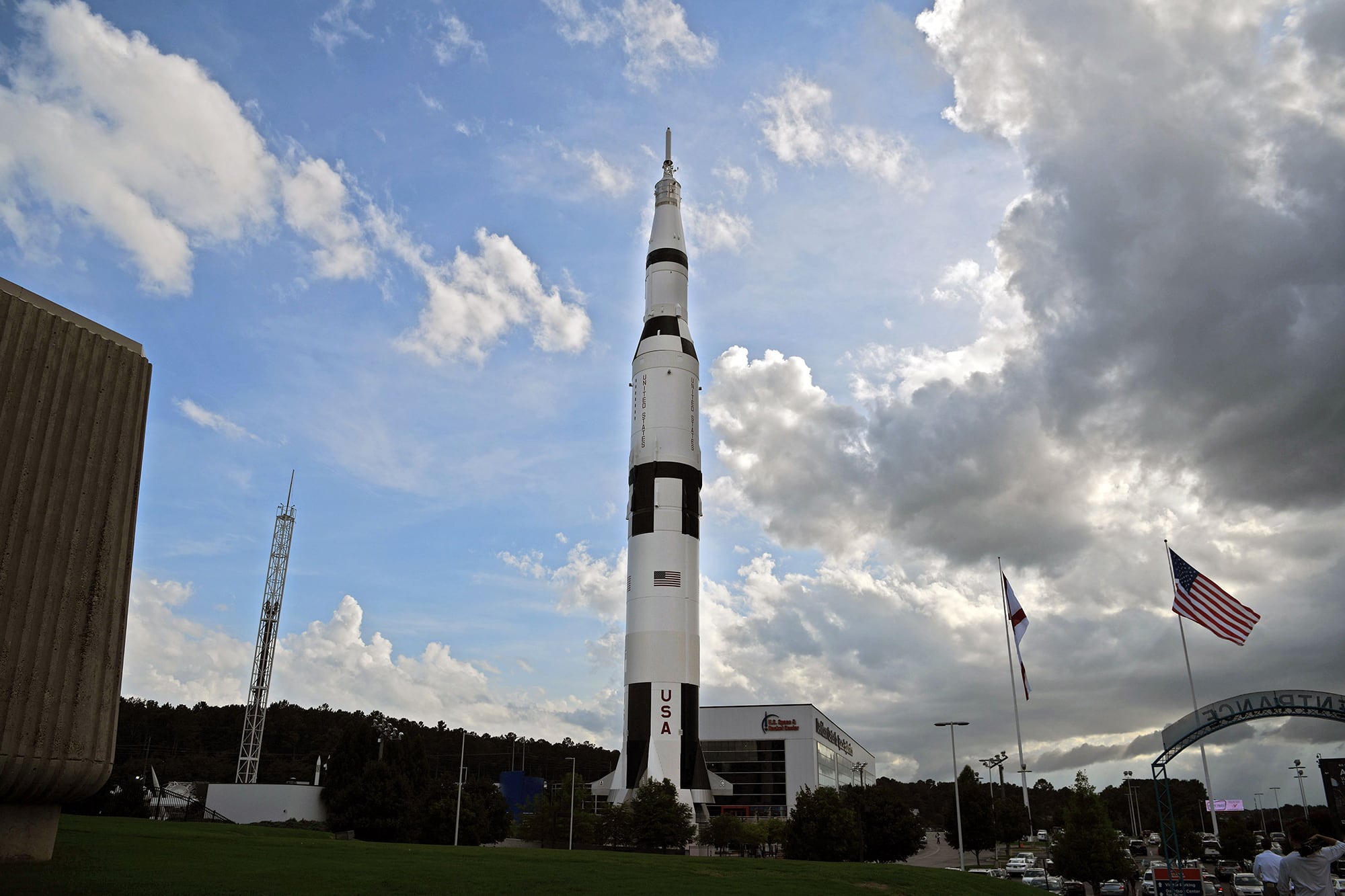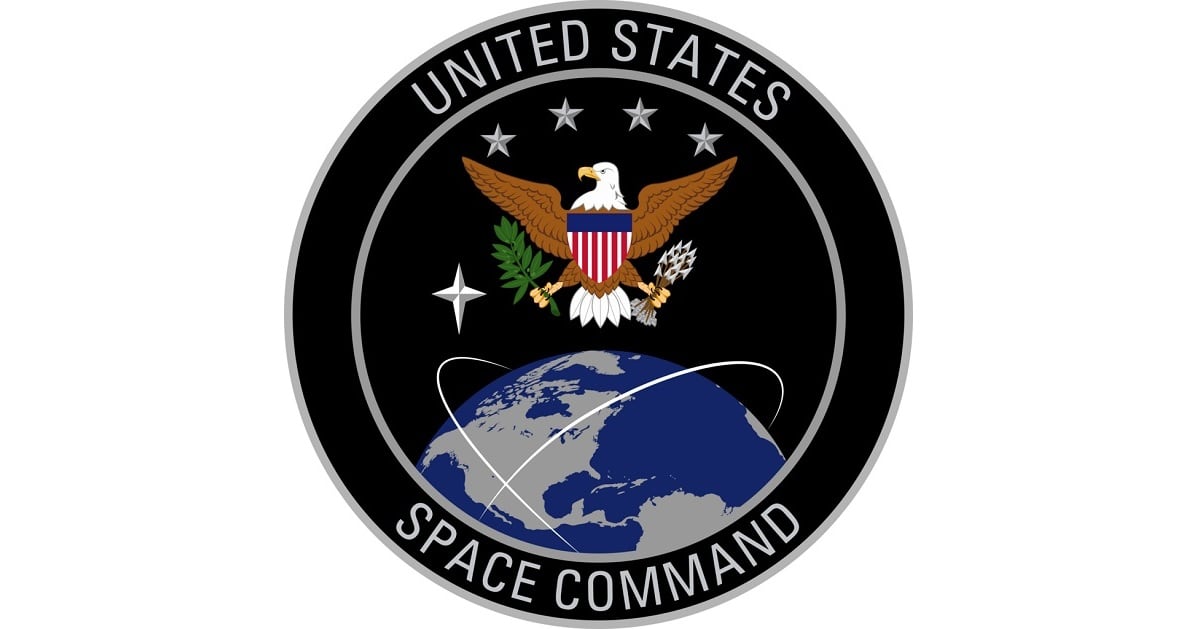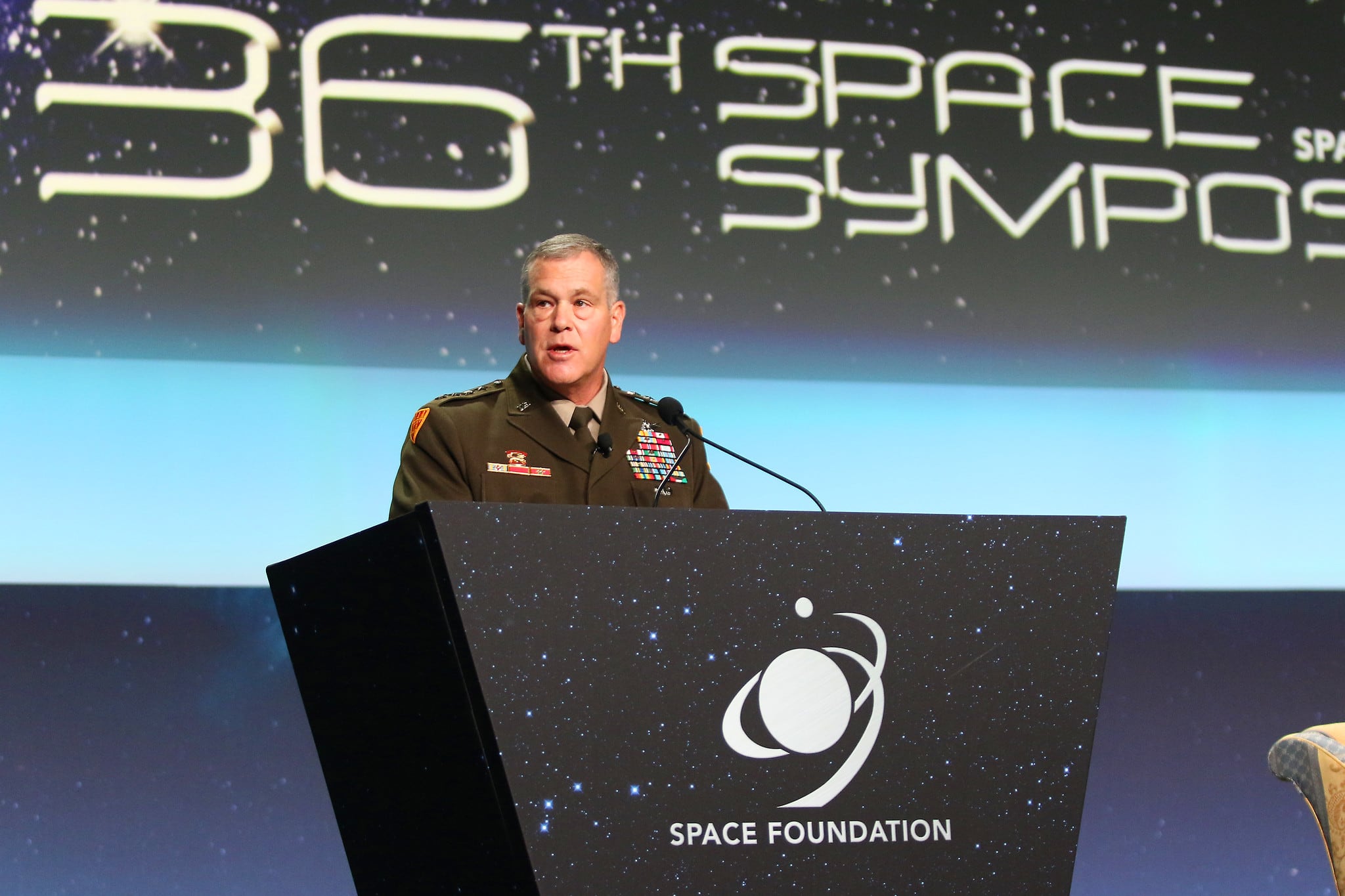The Pentagon Inspector General’s Office announced Tuesday that it believes Air Force officials followed the law and relevant policies when they picked Alabama as the likely permanent home of U.S. Space Command headquarters.
But the rules themselves may not have led to the most logical outcome for the key basing decision, the watchdog suggested.
Its newly published investigation report shows a tug-of-war within the Defense Department, pitting one city preferred by the military space establishment against one that ranked higher in formal evaluations.
RELATED

The Army’s Redstone Arsenal in Huntsville, Alabama, fared better in an Air Force-led site search that began in 2018, but the service briefly pointed to Colorado Springs, Colorado, as its preferred location for SPACECOM HQ after military leaders voiced their concerns about Alabama.
Huntsville, a NASA hub and home to the Missile Defense Agency, was listed as a feasible alternative to Colorado Springs in a Jan. 10, 2021, chart summarizing the Air Force’s considerations.
Two days later, a revised chart was “consistent with the rankings … which identified Huntsville, Alabama, as the preferred permanent location to host the USSPACECOM HQ,” the partially redacted 120-page report said.
The competition came to an end Jan. 13, in the final days of the Trump administration, when then-Air Force Secretary Barbara Barrett announced that SPACECOM would move to Redstone Arsenal.
“Huntsville compared favorably across more of these factors than any other community, providing a large, qualified workforce, quality schools, superior infrastructure capacity and low initial and recurring costs,” the service said at the time.
RELATED

The inspector general’s verdict closes out a 15-month process that some hoped would reverse a choice they believe was tainted by then President Donald Trump for political purposes after losing the 2020 presidential election.
The former president later helped foster those beliefs when, in August 2021, he said he “single-handedly” chose to move U.S. Space Command from Colorado to Alabama.
The Air Force’s decision angered Colorado lawmakers and its business community, which touted Colorado Springs’s status as a longtime hub for military space operations and industry, and the current SPACECOM headquarters. They called for multiple investigations by the defense secretary, DoD inspector general and Government Accountability Office into the basing process.
“Colorado is the most strategic choice for Space Command’s permanent home,” Sen. Michael Bennet, D-Colo., said in March. “We should not be wasting time, money or resources on moving Space Command from Colorado to Alabama.”
Construction of the new headquarters in Huntsville is slated to start in 2023, pending an environmental study that is expected to finish next spring.
RELATED

Established in August 2019, the command is in charge of military space operations spanning communications, intelligence-collection and missile-warning satellites and radars, rocket launches and more. SPACECOM wields the troops and resources it gets from the military services, largely concentrated in the fledgling Space Force.
The Department of the Air Force was put in charge of choosing a home for the command because it owns the bulk of the Pentagon’s military space assets.
But the IG raised multiple concerns about the Air Force’s spotty recordkeeping, possibly faulty consideration of factors like childcare and housing affordability, and its lack of formal rules and processes for choosing where to base combatant commands — the military organizations that manage daily operations in regions around the world and for certain missions like space and cyber operations.
“Basing Office personnel did not retain, create or request the creation of working documents that would allow validation of the basing action decision,” the IG said. Instead, the office is only required to keep a record of Huntsville’s selection.
RELATED

The bumpy path to picking a headquarters has lasted more than three years.
In May 2019, the Air Force identified Buckley Space Force Base, Peterson SFB, Schriever SFB and Cheyenne Mountain Space Force Station, Colorado; Redstone Arsenal; and Vandenberg SFB, California, as its ideal candidates to house SPACECOM. Each installation is already part of the military space enterprise.
SPACECOM was officially established three months later in August 2019. But DoD restarted the basing process in March 2020 amid congressional concerns about favoritism, and began accepting self-nominations from locations across the U.S.
The list of candidates then changed to include Peterson SFB; Redstone Arsenal; Patrick SFB, Florida; Offutt AFB, Nebraska; Kirtland AFB, New Mexico; and Joint Base San Antonio, Texas. Those six possibilities were graded on their ability to meet the mission, their installation’s physical capacity, the surrounding community and cost.
“The two most important criteria used to determine a permanent location for USSPACECOM HQ are the availability of a qualified workforce and proximity to mutually supporting space entities,” the service said.
RELATED

Redstone Arsenal was first on a list of the highest-scoring locations as of Nov. 6, 2020, according to an Air Force slideshow included in the IG report. Each score was redacted.
After Air Force Basing Office personnel toured the six candidate locations and decided how each compared on more than 20 criteria, Huntsville again topped an overall installation ranking.
The IG report said it couldn’t figure out how the Air Force’s color-coded assessment translated into the rankings that put Huntsville highest, and noted that investigators could vouch for the accuracy of just eight of 21 criteria used in the chart.
Critics have alleged that simply comparing the cost of living and working in Colorado to cheaper Alabama ignores a host of more important benefits to the military mission.
In early January 2021, Air Force basing officials shared their findings with senior leaders in the Air Force, Space Force and DoD. After those discussions and before briefing Trump, the Air Force added another factor: How soon could the permanent headquarters be ready, and how would that affect full-scale military space operations?
RELATED

The watchdog indicated that while the four-star SPACECOM and Space Force commanders were concerned about the selection process’s results, the basing office was not given evidence that the headquarters would get fully up and running faster in one city than another. The Air Force has estimated that milestone will arrive in fiscal 2025.
“The ranking of Colorado Springs, Colorado, as the preferred permanent location to host the USSPACECOM HQ in the Jan. 10, 2021, decision matrix was not supportable,” the IG added.
On Jan. 10, 2021, senior Air Force and military officials again convened to prepare for a meeting the next day with Trump about the basing decision.
Taking part in the discussion were Barrett and acting Undersecretary Shon Manasco, Air Force Chief of Staff Gen. Charles “CQ” Brown Jr., Space Force Chief of Space Operations Gen. Jay Raymond, SPACECOM boss Army Gen. James Dickinson, then-Vice Chairman of the Joint Chiefs of Staff Gen. John Hyten, and then-Air Force installations chief John Henderson and his principal deputy.
RELATED

Pentagon leaders ultimately presented the criteria chart recommending Colorado Springs, not Huntsville, to the White House on Jan. 11, 2021.
Barrett “declined to discuss the specifics of the … meeting with the President in detail,” the IG said. “Notes or transcripts … were not available for us to review.”
The following day, Barrett signed off on a new memo from the Air Force installation branch that recommended Huntsville as the preferred headquarters instead, and the service publicly announced its choice on Jan. 13, 2021.
Despite backing the Air Force’s decision, the IG suggested multiple changes to improve future site searches:
- The defense secretary should create policy and procedures for picking a combatant command’s location;
- The defense secretary should review the four-star generals’ concerns about hindering military space operations if SPACECOM leaves Colorado Springs;
- The Air Force secretary should remind the Basing Office of its record-keeping requirements; and
- The Air Force secretary should review whether the Basing Office can substantiate its claim that Huntsville met its needs for childcare, affordable housing and area support for military personnel and veterans.
All four recommendations remain open pending further action.
The GAO’s own report on SPACECOM’s future location is in its final stages and should be finished “in the coming months,” a spokesperson for the federal watchdog agency said April 12.
Colorado’s two senators and a bipartisan pair of congressmen, who were briefed on the GAO’s draft last month, didn’t sound optimistic about the result.
“After reviewing the draft GAO report, we are even more concerned about the questionable decision to move U.S. Space Command from Colorado to Alabama,” they wrote.
Rachel Cohen is the editor of Air Force Times. She joined the publication as its senior reporter in March 2021. Her work has appeared in the Washington Post, the Frederick News-Post (Md.), Air and Space Forces Magazine, Inside Defense, Inside Health Policy and elsewhere.




